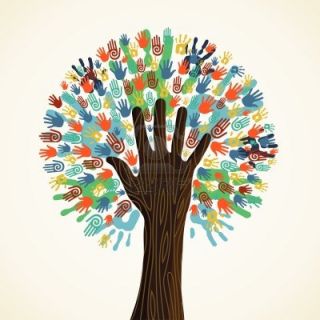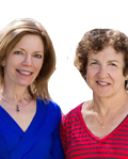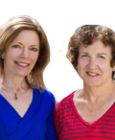Adolescence
Is Death the New High School?
As baby boomers face end-of-life issues, passages may evoke their teen years.
Posted May 6, 2014

A Muslim pharmacist, a Chinese businesswoman, and a wildlife-saving Army veteran walk into a room. Oh, and the veteran is a Protestant chaplain who works with the Pagan community. Whatever could they have in common?
They’ve come to the Institute on Aging www.ioaging.org in San Francisco to discuss attitudes toward death among diverse communities. The discussion is sponsored by VITAS, the nation's biggest hospice company. Although different in the details, these attitudes turn out to be remarkably similar across cultures, religions and economic levels. From Pagan to Protestant, poor to 1 percenters, Americans fear and deny death.
Especially for the tidal wave of baby boomers, the end of life could be compared to the teenage years. Both are unavoidable passages – experiences all families face. Both are replete with barriers to conversation, family conflict and misunderstandings, and often result in regretful memories.
When listening to representatives of divergent communities talk about end-of-life issues, I had to wonder: Is death the new high school?
First, let’s look at a few fascinating differences among people. Rituals stand out. Nora Talebi, the pharmacist representing the Islamic Speakers Bureau www.ing.org has brought a prayer rug, a plate engraved with Koranic verses, and a Koran on a bookstand to show what visitors might notice when they enter an Islamic home.
Often a Muslim family will say they have no need for outside help, Talebi says to the assembled the social workers, case managers and chaplains who work for hospice and palliative care agencies. To build rapport, dress modestly. You might take off your shoes. Don’t be offended if a person of the opposite sex doesn’t shake hands. “Ask to speak to the female of the household, especially in an immigrant family. Ask anything about their kids. If they offer food, take it.”
In a Chinese-American home, says Jean Fu Yih, board member of the Chinese American Coalition for Compassionate Care, it is common to hear: “At the end of life, I don’t want to meet a stranger.” If a hospice offers the help of a chaplain, recent immigrants have no idea what that is.
Veterans, on the other hand, know very well what a chaplain is. As Charlotte Bear, program educator at VITAS, told the group, “For veterans, chaplains are always there. They’re like the employee assistance program.”
Now, the commonalities. Yih ticks them off:
“We all know death is coming, sooner or later. We all think, It’s going to be later.
"Oh, I’m healthy. We don’t need to talk about end-of-life issues.
“Hospice equals giving up, waiting to die."
However, religion may be a bridge rather than a barrier. Yih mentions a Chinese-American patient with end-stage liver cancer who didn’t want a stranger in her home, but she did want someone to come and read her the Bible. It didn’t matter if they were of different faiths.
In Islamic homes, too, the family is very important. Aunts, cousins, everyone has a role. Two Muslim families may not speak the same language. After all, there are more than 1.6 billion Muslims around the world, two-thirds in the Asia-Pacific region. Talebi says that a recent immigrant from Yemen likely will have different beliefs from a decades-established Palestinian-American pharmacist like herself, or an accountant from Malaysia. A core belief respects God’s will. As she puts it: “God has a divine plan for everybody. Only God knows when we’re going to die.” Muslims may reject palliative or hospice care as they hold onto belief in a cure untll the last minute.
How is this different from Chinese-American homes? Only in the details. They too speak different languages and dialects, having come from Hong Kong, Taiwan or regions of mainland China. Again, the family is central. Finally, filial devotion and faith in modern medicine often cause Chinese-Americans to continue painful, fruitless treatments.
Is it a stretch to compare the end of life to the high school years? Except for this: We all go there.
--Sheila Himmel


